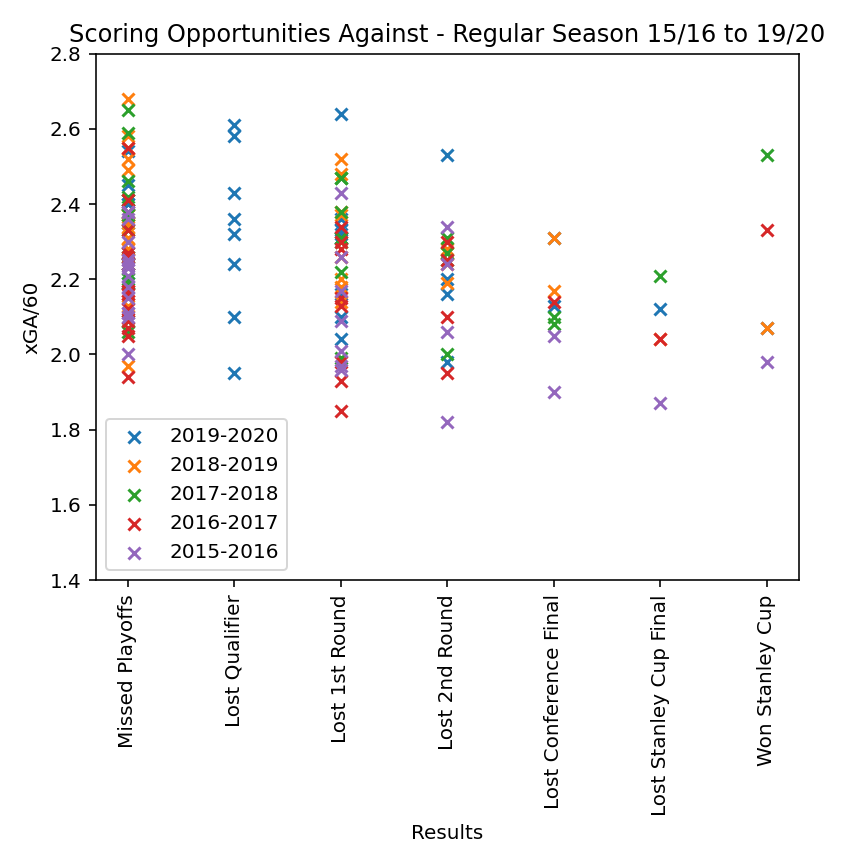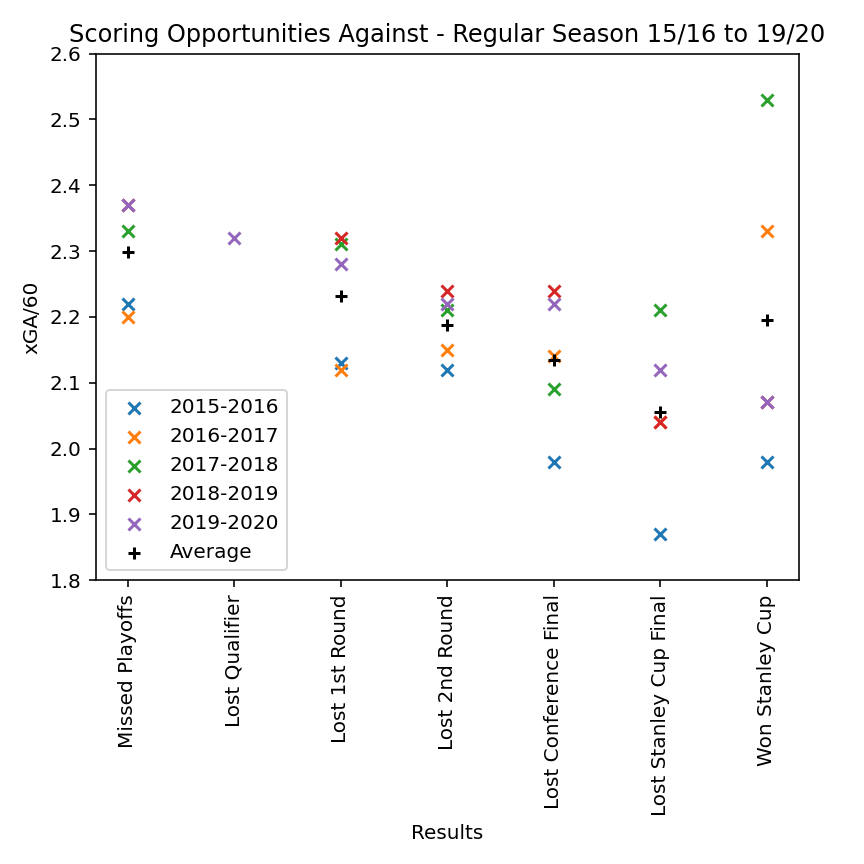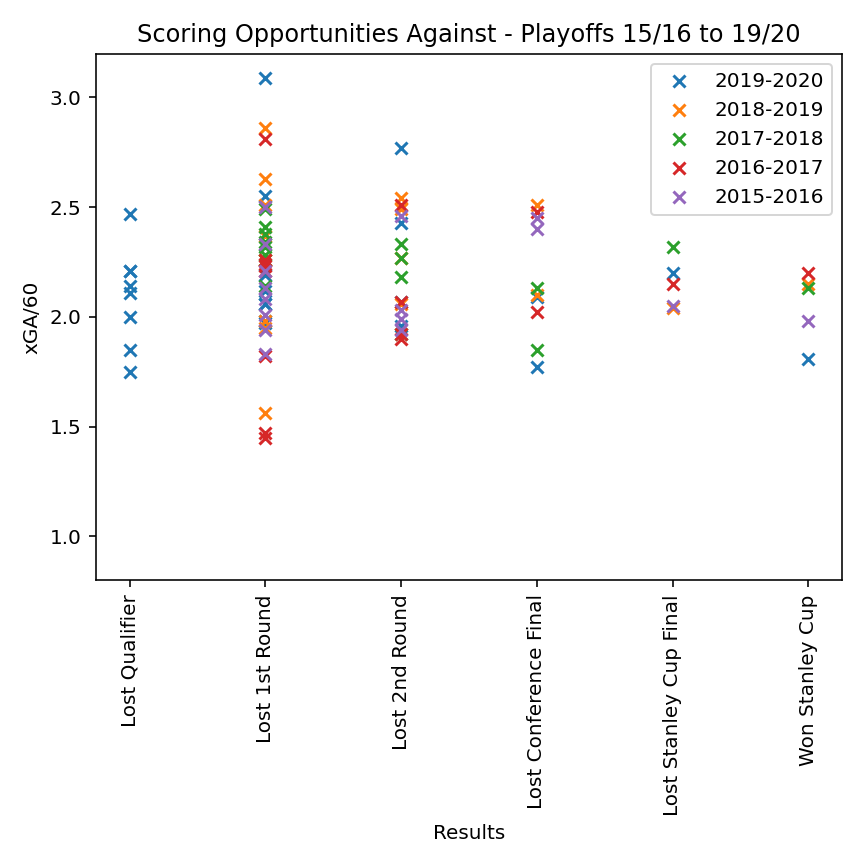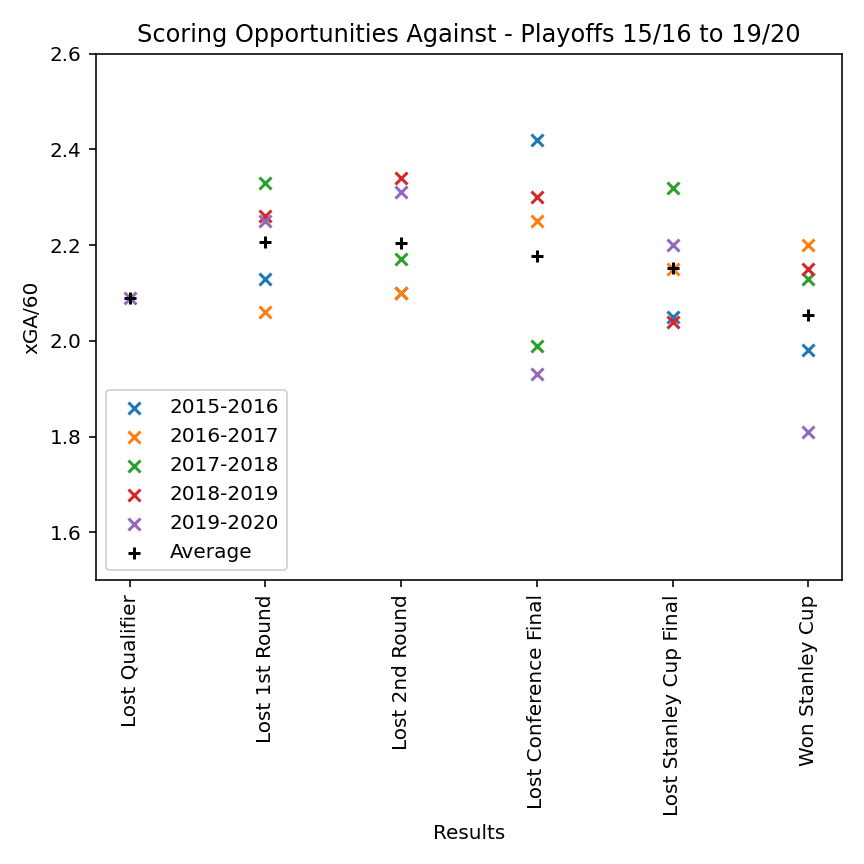Defense wins championships.
If you follow team sports, you’ve no doubt heard this statement more times that you can count. A google search will turn up a myriad of opinions on the topic, but little conclusive evidence. Is it possible to measure? Does defense win championships in the NHL?
If we are going to answer this question based on data, we first need to determine how to measure team defense. So what does good team defense look like? Ultimately, the objective is to allow fewer goals than you score. With that in mind, allowing the fewest number of goals against is an outcome we could look at that would suggest team defensive prowess. However, there are other factors at play when we simply consider goals against, such as goaltender save percentage and the effect of special teams, that affect the total number of goals against. So how can we isolate and measure team defense?
A quick look at the time spent in each phase of play over the course of each season shows us that roughly 48 of every 60 minutes (80%) was played at 5 on 5 over the past 5 seasons. In the playoffs, this rises slightly to about 49 minutes at 5 on 5 for every 60 minutes played (82%). With such a large proportion of play occurring at 5 on 5, this seems like a good place to start.
Since total goals against may have too many factors to reliably assess team defense, we need to find another stat that is a better representation. The ability to limit scoring opportunities against seems like a better measuring stick for team defense. We could use shot based metrics; however, these stats don’t consider the quality of the shots. A weak shot from the point is equal to a rebound attempt from the top of the crease when we simply consider quantity of shots or shot attempts. A better metric is expected goals against (xGA), which includes the quantity of shots against as well as the quality of those shots in one metric. Expected goals against (xGA) is the number of goals a team is expected to have conceded based on the quantity and quality of shots against. Since xGA uses league average shooting and save percentages to evaluate the quality of shots, it removes individual shooting and goaltending skills from our team defense statistic.
We’ll convert the xGA to a rate per 60 minutes played at 5 on 5 to provide an even footing for comparison since each team has played slightly different amounts of time at 5 on 5. We expect a defensively sound team will concede fewer scoring opportunities and thus have a lower xGA/60.
Using the xGA/60 from Natural Stat Trick, let’s take a look at the rate that teams gave up scoring opportunities in the regular season relative to the playoff performance of each team. The first chart below shows this data for each team over the past 5 seasons. The second chart shows the average for each group of teams based on playoff performance over the same time period.
We can see from this data that teams that went further in the playoffs generally gave up fewer scoring opportunities during the regular season. However, if we look at only the Stanley Cup winning teams, we also see that two of the last five Stanley Cup champion teams (2016-2017 Pittsburgh Penguins and 2017-2018 Washington Capitals) did not fit this mould. They both gave up a relatively high rate of scoring opportunities relative to the rest of the league.
In addition, we see there is a very wide range of xGA/60 for teams that either missed the playoffs or were eliminated in the first round. Some of these teams even had lower xGA/60 than the eventual cup champions. From what we see in the regular season data, it looks like defense may not be the key to winning a championship after all. However, the Stanley Cup is not won in the regular season so let’s take a look at the same data for the past 5 playoffs.
We see a somewhat different picture here. The Stanley Cup champion teams are consistently among the lowest xGA/60 in the playoffs. So, while some of these championship teams were able to make the playoffs while giving up a lot of scoring opportunities, they all tightened up defensively during their championship playoff run. Also, similar to the regular season, we see teams that were knocked out early in the playoffs that have comparable xGA/60 to the cup champions.
So, back to our initial question: does defense win championships? We’ve seen that a championship team may be able to make the playoffs with a less than stellar defensive record in the regular season, yet they are able to tighten up defensively in the playoffs. We’ve also seen that other teams with comparable or lower xGA/60 to the championship teams were much less successful.
Since the cup winning teams all performed well defensively through the playoffs, I don’t think we can completely dispel the notion that defense wins championships. Solid defense does appear to be a common trait of championship teams. In fact, it seems reasonable to suggest that it is not possible to win the Stanley Cup without good team defense in the playoffs. However, we have also found there are many other teams with similar xGA/60 that either missed the playoffs or bowed out in the first round. Our data suggests that defense alone is not enough to win a championship.
What do you think? Does defense win championships? What other traits do championship teams share?



